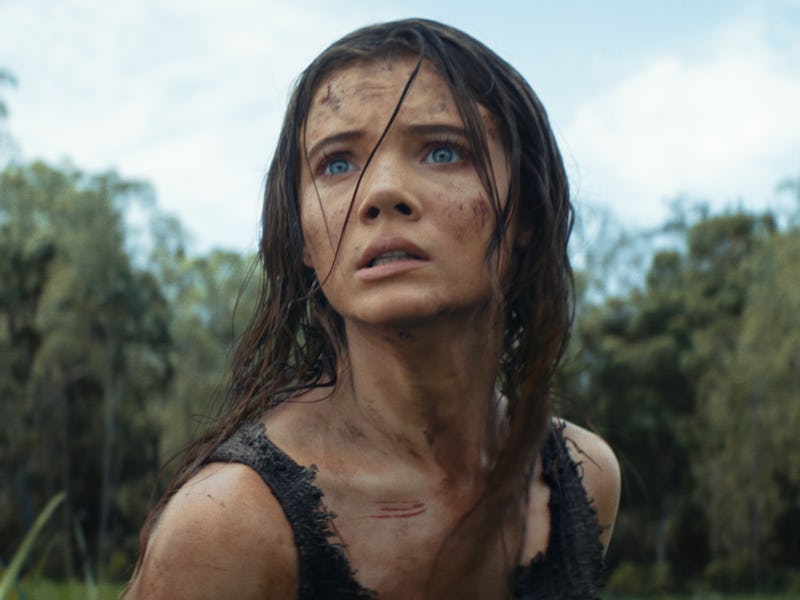A New Planet of the Apes Trilogy Can Answer the Franchise's Biggest Question
Time to go ape.

The future of Earth may be uncertain, but the future of the Planet of the Apes franchise is looking very bright. A Hollywood Reporter story about the strength of movie franchises seems to have confirmed that two sequels to Kingdom of the Planet of the Apes are in the works.
2024’s surprisingly sweet soft reboot will apparently be transformed into a trilogy, much like Rupert Wyatt’s and Matt Reeves’ trilogy that ran from 2011 to 2017. And if this new trilogy does happen, the next installment can finally answer the biggest question teased by Kingdom of the Plane of the Apes, while also bringing back one of the best elements of the franchise’s earliest stories.
A new Planet of the Apes trilogy
While Kingdom of the Planet of the Apes is set in the same continuity as the three films starring Andy Serkis’ Caesar, the movie takes place several centuries beyond that trilogy. This means Kingdom is something of a standalone movie that, while beholden to the canon of the previous films, has also created its own backstory while hinting at an incredible future.
According to The Hollywood Reporter, the solid reviews and decent box office showing for Kingdom “was a crucial test.” It raked in $400 million, “enough to fulfill filmmaker Wes Ball’s dream of a new trilogy.”
But what will that trilogy be about? And could it finally restore the one thing that’s (mostly) missing from the modern Apes movies — space apes?
Space travel is the best Apes trope
There are apes in those space suits!
Famously, the reason Pierre Boulle’s original 1965 novel is called Planet of the Apes is because its story is about human astronauts crashlanding on an alien world ruled by intelligent simians. Ditto the original 1968 movie; astronauts from Earth crash on what they think is an alien planet, only to discover they’ve warped into the future. In the third film, 1971’s Escape from the Planet of the Apes, future apes travel back in time to avoid Earth’s destruction, which sets up a presentation paradox in which intelligent apes have come from the future rather than evolve naturally, and is arguably the apex of the franchise’s dabbling with the cosmos.
Apes in spacesuits and people traveling through the stars to meet intelligent apes are a big part of the franchise, but other than an offhanded reference to the “Icarus Mars mission” in Rise of the Planet of the Apes, the modern Apes movies (2001’s unrelated reboot notwithstanding) have largely avoided dealing with space travel. But the cliffhanger to Kingdom suggests the franchise is headed back into the stars. As director Wes Ball told USA Today this year, “Space obviously is a key idea in all of these movies.”
Kingdom's big unanswered question
Noa’s future is unclear. Will he head into space?
While Kingdom of the Planet of the Apes almost certainly takes place on Earth, the movie's final moments suggest that space travel is connected to the puzzle of the planet’s status quo. The camera lingers on a mural of an astronaut as surviving humans reactivate space satellites, after which ape Noa (Owen Teague) and human Mae (Freya Allan) each look up at the stars. It’s a subtle nod to an earlier moment in the film in which Noa was amazed by the opportunity to look through a telescope. Just what did he see?
The ending of Kingdom of the Planet of the Apes suggests a conflict between apes and humans could certainly happen. Humans seem to have regained their technological edge over apes, while Noa’s more peaceful collection of apes has learned, once again, to distrust humans. But where will all this space stuff take both sides?
While one theory suggested the planet in the film is not Earth, Kingdom seems to make it clear it is. So what happened to Earth between the conclusion of Matt Reeves’ trilogy and Kingdom? The movie never spells out what unfolded over the centuries, nor does it explain what astronauts and satellites have to do with anything. But Wes Ball did tease the reveal of an answer in a future film. “I have ideas of what they're looking at,” he said upon the film’s release. “Maybe it’s them looking to the future?"
If Ball’s apes do get another outing, the space thing will be the biggest question he has to tackle: why was everyone looking toward the stars? And if that answer leads to an even bigger adventure, then perhaps we’ll get to see apes in spaceships again, just like in the novel and Escape. We’re not saying that a Kingdom sequel guarantees space apes, but we’re now one step closer.